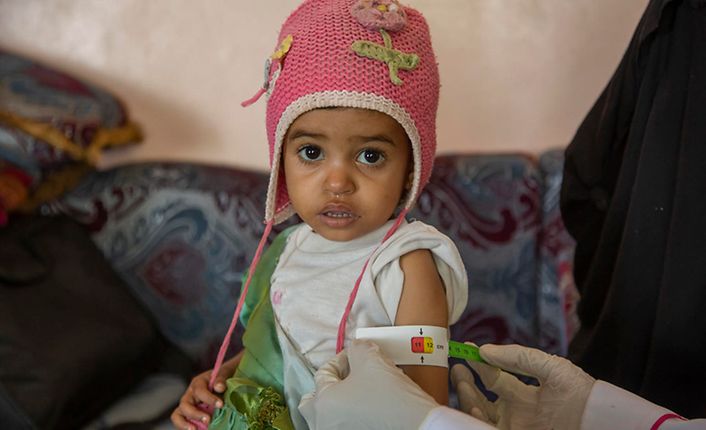Amira Sherif
Similar to what the Houthis did in controlling the trade of oil derivatives and domestic gas, as well as monopolizing work in the relief sector by closing all organizations that existed and were not affiliated with them and then creating alternative organizations, the militia has included the pharmaceutical sector in the lists of commodities whose trade is monopolized.
The Iranian-backed terrorist militia continues its criminal operations against civilians, as it has forced foreign organizations operating in Yemen, which are active in providing drug assistance, to buy medicine from specific drug companies and agencies that the Houthis recently established to replace local drug companies.
Local news site NewsYemen quoted a source in the Save the Children organization as saying that the Houthi militia forced Save the Children and other foreign organizations to buy medicine from ten drug companies that were recently established by the militia.
The source added that the militia has diverted dozens of drug companies that are not affiliated with them from selling medicine to organizations by stopping the renewal of licenses for them, explaining that when organizations request the supply of medicines, they require that drug companies and agencies have a valid permit from the official authorities.
According to media reports, the Houthi militia took administrative measures that enabled it to monopolize the drug trade, especially with humanitarian organizations operating in the country that work in the field of providing hospitals with medicines.
It is reported that the Houthi militia exploited its control over the Supreme Medicines Authority, refused to renew the licenses of operating companies and agencies, granted new licenses to companies and agencies owned by Houthi leaders, and adopted new and alternative varieties of medicines for the benefit of these agencies.
Earlier, the terrorist militia monopolized the trade of fuel, including cooking gas, and doubled its prices. It also monopolized the provision of relief work services to international organizations operating in their areas of control, while appointments to public positions were restricted to those belonging to the same lineage as Houthi leaders.
Militia leaders are the only ones able to work in this sector, as reports revealed that when any international organization submits a request to import shipments of medicines, the Houthis, through their Council for Humanitarian Affairs, require that the applicant companies obtain a recent renewal of work permits, and therefore these organizations can only turn to the companies established by the militia. This also comes after the militia previously succeeded in monopolizing the trade of oil derivatives through the establishment of new companies to import and market fuel, and its refusal to renew work licenses for companies that existed before the coup.
According to reports, Houthi leaders, including spokesman Mohammed Abdul-Salam, financial official Saleh al-Shaer, Ali Nasir Qarsha and Ahmed Dughsan, own the most important oil derivative import companies, monopolize the trade of this commodity, control its prices, and run a black market that extends into all areas of Houthi control.
Statistics from the Supreme Medicines Authority indicate that the drug import bill amounts to about 88 billion riyals annually, while the number of medicines registered in Yemen is 20,000 items, the prices of which increased by more than 200 percent due to the decline in the local currency’s price against the dollar, in addition to the levies imposed by the militia, as its smuggling and counterfeiting activity increased dramatically during the past five years. The market is full of many varieties of counterfeit medicines, including medicines used to treat cancer and chronic diseases, after the militia began a campaign to close dozens of pharmacies in Sanaa and granted its members and leaders the right to open alternative pharmacies.
For its part, the Pharmacy Owners Syndicate confirmed that only 5,000 pharmacies operate according to official permits, while another 13,000 pharmacies operate without fulfilling the legal procedures.
The Houthis sought to form a financial empire by seizing the money and property of its opponents since their coup against the legitimate government, as well as state property that was taken into the private ownership of Houthi leaders. The militia also monopolized the trade of oil derivatives and stopped the work of the companies that existed, froze their assets and seized their properties, in addition to using the military transport sector and military economic establishment facilities to monopolize the logistical services of international relief organizations, such as providing warehouses and transportation mechanisms, as well as incubating non-governmental organizations instead of the independent organizations that existed, and enabling these organizations to work as local partners to transport and distribute relief materials, which the militia directs to serve its war effort.
The prices of most medicines increased by 200 percent compared to their previous prices, driven by royalties and levies imposed by the Houthi militia, which added a new burden on patients, especially those with chronic diseases.







































admin in: How the Muslim Brotherhood betrayed Saudi Arabia?
Great article with insight ...
https://www.viagrapascherfr.com/achat-sildenafil-pfizer-tarif/ in: Cross-region cooperation between anti-terrorism agencies needed
Hello there, just became aware of your blog through Google, and found ...